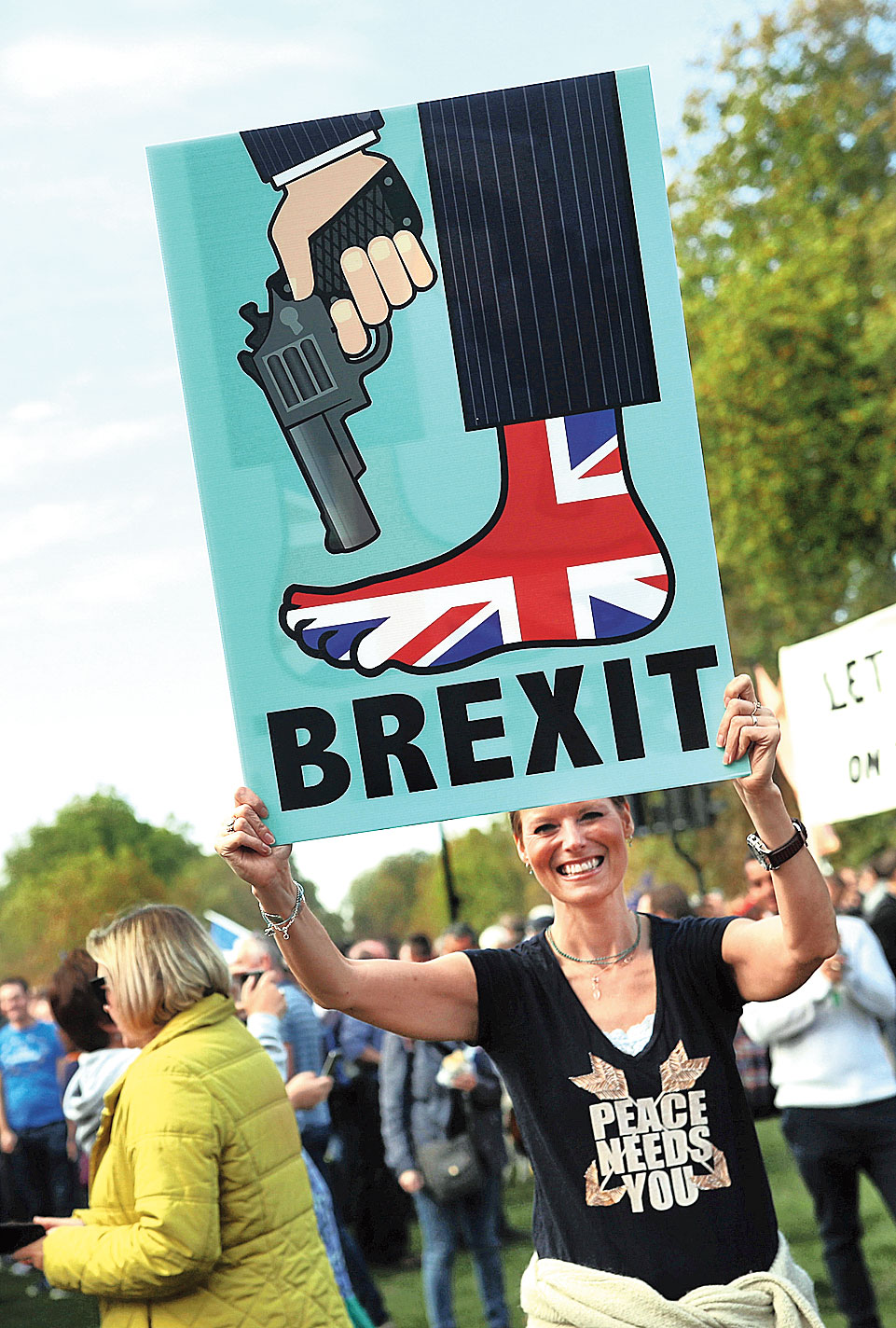Hundreds of thousands of supporters of the EU marched through London on Saturday in the biggest demonstration so far to demand that the British government holds a public vote on the terms of Brexit.
The protesters waved the blue and gold flag of the EU and held up“Bollocks to Brexit” banners under sunny skies to call for another referendum on the eventual deal on how Britain will leave the world's biggest trading bloc.
The march comes after another tumultuous week for Prime Minister Theresa May in which she failed to agree a divorce deal with EU leaders in Brussels and infuriated members of her own party by making further concessions in the talks.
With just over five months until Britain is due to leave there is no clarity about what a future trade deal with the EU will look like and some rebels in May’s Conservative Party have threatened to vote down a deal if she clinches one.
James McGrory, one of the organisers of the march, said voters should have the chance to change their minds because the decision will impact their lives for generations.
“People think the Brexit negotiations are a total mess, they have no faith in the government to deliver the promises that were made, partly because they cannot be delivered,” he said.
At the march, demonstrators carried placards saying“ Brexit is pants”, “Time for an EU turn” and “European and proud”.
Organisers said about 670,000 people took part in the march, which would make it the largest in Britain since a demonstration against the Iraq war in 2003.
The “People’s Vote” campaign, which includes several pro-EU groups, said they had stewards stationed at regular intervals to estimate the size of the crowd. The police did not provide an independent estimate of numbers participating. Protesters originally gathered near Hyde Park and then walked past Downing Street and finished outside parliament where they listened to politicians from all main political parties.
Britain’s 2016 referendum saw 52 per cent vote in favour of leaving the EU. But the past two years have been politically fraught as the government has struggled to agree on a plan and there are fears that Britain could leave the bloc without a deal. Some opinion polls have shown a slight shift in favour of remaining in the EU.











